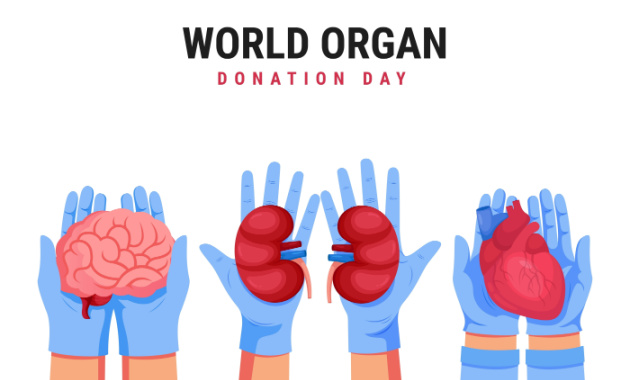
World Organ Donation Day is observed every year on August 13 across the globe to raise awareness of the need for donating organs and to thank organ donors for their life-saving contributions. The first organ donation occurred in 1954 when the kidney was the first human organ to be transplanted successfully [1].
A donation from a deceased organ donor can save up to eight lives:
-Two kidneys can free two patients from dialysis treatments
-One donated liver can be split to go to two patients on the waitlist.
-Two donated lungs can save two patients
-The donated pancreas can save one life
-The donated heart can be a gift of light for someone
There are two types of organ donation:
-Living donation: The donor is alive
-Cadaver Donation: The donor donates after death
5 Things To Know About Organ Donation
1. Anyone Can Be A Potential Donor
Any individual can be a potential donor regardless of race, age, or medical history. The key factor for live donation is a healthy donor. It is important to ensure that aspiring organ donors do not suffer from chronic illnesses such as cancer, lung, HIV, and heart disease.
Before transplantation, the donation professionals examine the medical history to check whether an individual can donate or not. With recent advances, more people can donate organs than ever before.
2. One Donor Can Change Dozens Of Lives
It is aptly said, “Life Begins After Death”. By being a part of a donation, one single organ and tissue donor can save up to eight lives and raise the lives of more than 50 people. The latter includes helping in restoring eyesight, damaged tissues, and other vital functions.
3. Adults Can Be Living Donors
While most organ donations happen after death. But in a few cases, close ones and family members can help in saving the life of an individual facing the issues. Living adults can choose to donate kidneys and parts of the liver.
Humans can survive with one kidney, and the liver is the only organ having the power of regeneration. This makes it possible to transplant these organs while the donor is still alive.
4. Register Yourself As A Donor
Indian Citizens, can register themselves on the portal, National Organ & Tissue Transplant Organisation (NOTTO), and take a pledge there to donate a single organ, multiple organs, or tissues.
5. Donating Will Not Costs Anything
There is no cost to a deceased donor’s family for donating organs and tissues. All the expenses related to organ donation are covered by the beneficiary’s insurance. Any type of costs from hospital expenses, and attempts to save the donor’s life, remain the responsibility of the donor’s family.
According to the World Health Organisation (WHO), only 0.01% of individuals donate their organs after death.
Conclusion
Organ donation gives hope and life to patients awaiting transplants. It’s a lifesaving gift to someone who is waiting for a donor. A healthy heartbeat, a chance to walk again, a gift of sight and to lead a life like a normal individual.
Therefore, Join Hands and Revolutionize the world, By Taking A Pledge To Donate Organs To Bring A Ray Of Hope In Someone’s Life.
(The article is written by Simran Suri, Assistant Team Lead, and reviewed by Monalisa Deka, Senior Health Content Editor)
References